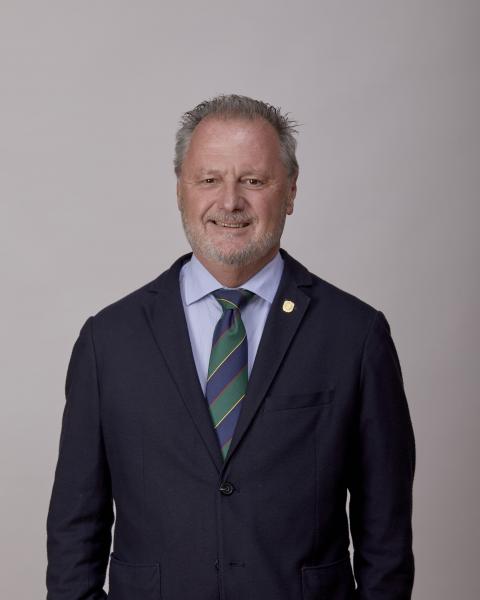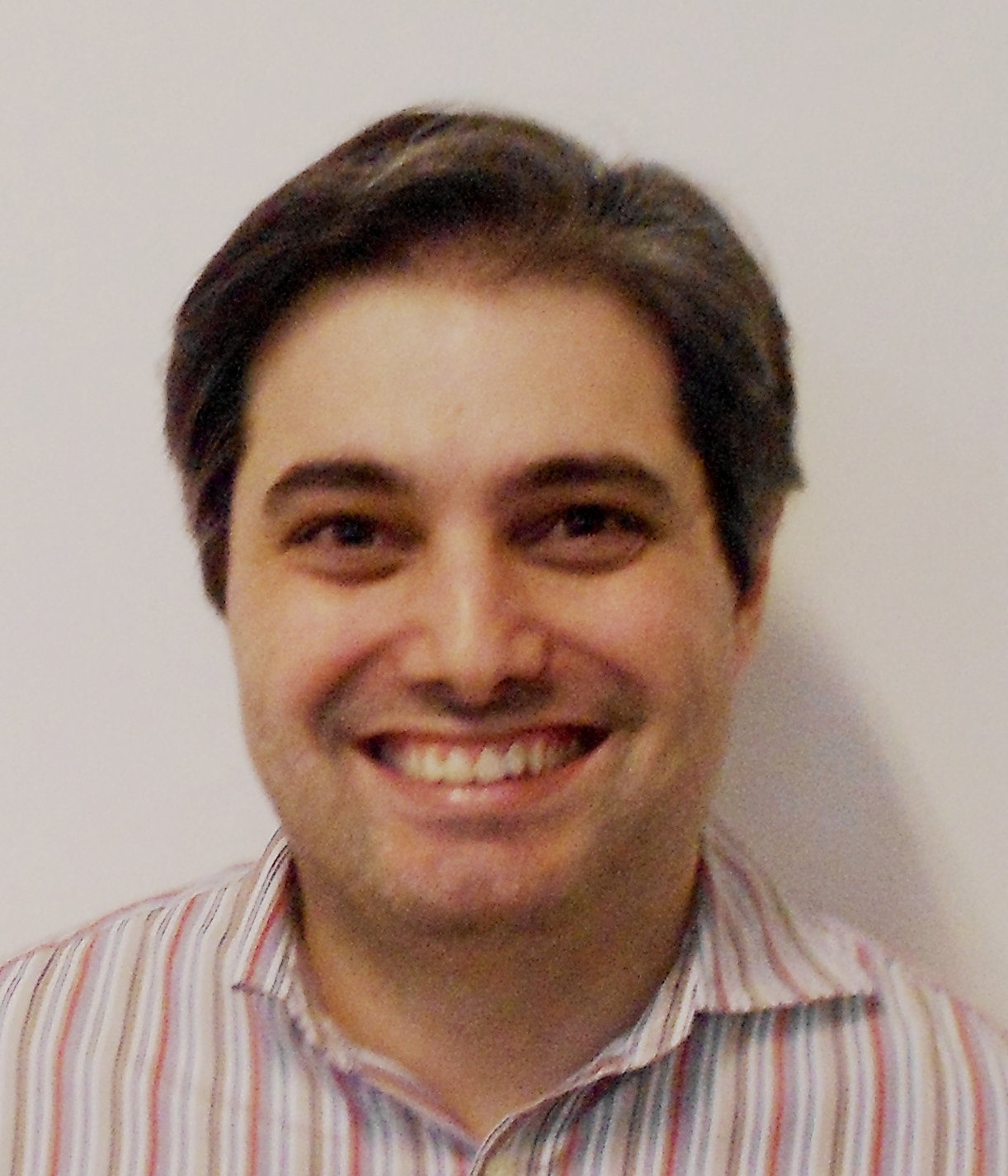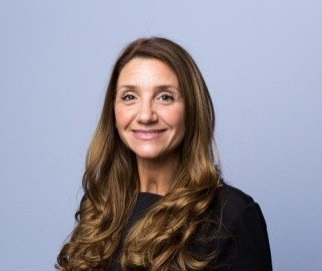INTERNATIONAL PROGRAMS OFFICE (DCI)
Address Tucumán 1699, C1050AAG, Buenos Aires, Argentina
Phone Number (+ 54 11) 2206-4750
Opening hours Monday to Friday from 9am–6pm
Contact Staff for Incoming Students:
Coordinator of Incoming Mobility
Administrative Assistants
Regular Exchange–First Semester 2022:
March 4th–Arrival Orientation for exchange students
March 7th–Semester begins
March 24th-National Holiday
April 2nd–Remembrance Day of Malvinas' Veterans and Fallen, National Holiday
April 14th & 15th–Holy Thursday & Friday Holiday
May 25th-Anniversary of Revolution Day
June 20th-Remembrance of General Martin Miguel de Güemes Passing, National Holiday
July 2nd–Semester ends
Regular Exchange–Second Semester 2022 (tentative):
July 29th–Arrival Orientation for exchange students
August 1st–Semester begins
August 15th–Remembrance of General Don José de San Martín Passing, National Holiday
September 21st–Student’s day Holiday
October 10th–Cultural Diversity Respect Day, National Holiday
November 5th–Semester ends
APPLICATION REQUIREMENTS AND PROCEDURE
Coordinators must nominate their students by e-mail to alumnointernacional@usal.edu.ar, indicating full name, period of exchange and major/minor of each student.
-
Valid passport
-
Copy of Academic Transcript
-
Letter of intent in Spanish (250 words)
-
Tentative list of courses (students must take a minimum of 5 classes at USAL to fulfil our requirements)
-
Spanish Level Report: an intermediate level is required (please check our language indicators at Intermediate level
-
Medical form: completed and signed by student
(*) Files must be send as PDF or JPG.
It is highly recommended to have all the listed documents before starting the online application. USAL will not accept incomplete applications.
First semester (march – july): October 15th.
Second semester (july – november): April 15th.
Our office sends the official acceptance letters by email at the end of every application reviewing period.
ACADEMIC SYSTEM
The University’s academic structure is made of 'Facultades' (Schools) and 'Escuelas' where one or more academic degrees are offered. Our academic system is based on mandatory curricula.
Our regular students are given a structured study plan every year of their degree. Argentine students take all their courses with the same group of classmates.
The main language of instruction is Spanish.
It consists of two semesters:
1st Semester: March – July
2nd Semester: July – November
Classes:
-
There are semester-long and annual courses. International students may register in either.
-
International students can choose any subject offered in almost any major according to their interests, academic background and Spanish proficiency.
-
International students should register in a minimum of 5 courses.
-
The teaching methodology varies according to the professor: lecture type classes in groups no larger than 40 students, small group courses with active interaction between faculty and students and classes specially designed for international students.
-
Courses meet once or twice per week.
-
Class attendance is mandatory. Students must have at least a 75% attendance rate.
-
Student assessment varies: midterm exams, final exams, research work, term papers, etc. Examinations can be oral or written. Exams for international students are given within the semester and before classes end.
-
Our grading system is from 1 to 10. 10 is the highest grade. 4 is the lowest passing grade and anything below it is a Fail.
-
The language of instruction is Spanish.
-
Transcripts are sent to the student’s home university at the beginning of the following semester:
-
Students who have completed USAL’s First semester: academic transcripts will be mailed by September. Second semester: academic transcripts will be mailed by February.
ACADEMIC OFFER IN ENGLISH for 2021 (tentative list)**
**Please keep in mind that course offer dictated in foreign language may vary from semester to semester and is yet to be completed.
ADDITIONAL SERVICES AND ACTIVITIES FOR STUDENTS
- Host Student Program (Buddy Program): this is an informal group organized by USAL students to provide a friendly environment for international students, especially during their first weeks in the city. They plan asados, nights out and cultural activities together.
Find out more:
- Sports: the university offers a variety of sports, such as men’s and women’s soccer, hockey, tennis, rugby, etc. Sports are one of the best opportunities for international students to make friends who share the same interests and to travel for tournaments and matches held in other parts of the country.
Find out more:
(+54-11) 4815-0260 Mon to Fri 12-4pm
- Choir and Orchestra: this is a great activity for students interested in playing an instrument or singing in a renowned University Choir.
Find out more:
- Library
Find out more:
Address: Av. Córdoba 1601 - 3rd floor
Mon to Fri 9am-8.30pm
(+54-11) 4371-0422 int. 1229
- Pastoral Activities: these activities are organized by the different Schools. Students who choose to participate in them will have a unique opportunity to approach an entirely different social situation while making a difference in another person’s life.
Find out more with the Academic Advisor of any of the Schools where you are taking courses.
- Life in Buenos Aires:
The Department of Migrations together with the Argentine Foreign Ministry have changed the disposition for Student Visas: from now on all students who wish to study for more than 90 days must process a Student Visa in an Argentine Conulate in their country BEFORE entering Argentina.
In addition students will have to send the Consulate the other required documentation and complete the forms indicated in their webpage.
This application will cost U$D 150 or €150 and can take up to 40 days to be processed and accepted.
It is extremely important that at the moment of completing their application, students send a valid copy of their passports. The passport must be valid up to 6 months after the exchange period. Students must also indicate in which Consulate they will be processing the Visa while completing the admission form, http://dcii.usal.edu.ar/dcii/formulario-admision-usal. They can check the Argentine Consulate here: link
Students who do not comply with Argentina’s migratory legislation will have to be dismissed from the program and will not receive an academic transcript. USAL will notify the National Migrations Department and the home university.
USAL does not have on-campus accommodation. Students are responsible for booking their own accommodation during their stay in Argentina.
Below is some useful information to help you find accommodation in Buenos Aires.
We suggest staying in a hostel or a hotel during the first few days while you look for the best accommodation. This will allow you to visit the different options. Once you have decided on one, we recommend you sign a formal contract.
There are several options for accommodation in Buenos Aires
Homestay accommodation: You would be living with a person or a family and probably other guests. Benefits usually include a single or double room with or without meals. For more information and recommendations, please contact internacional@usal.edu.ar
Student Residences: Most of them offer shared rooms with breakfast. They usually provided cooking facilities.
Some of them are:
Shared appartments: You will be living with other argentine or International students on a temporary rental basis. The most popular websites to look for this kind of lodging are Airbnb, Craigslist y Roomgo.
if you are interested in receiving detailed information on accommodation options, please e-mail us to internacional@usal.edu.ar.
-
MEDICAL EMERGENCIES, PERSONAL SAFETY AND TRAVELLING
In case of a medical emergency:
1) Contact our staff at any time.
2) Go to the nearest hospital if necessary.
Emergency contact information
|
DURING OFFICE HOURS
(Monday to Friday, 9am – 6pm)
|
OUTSIDE OFFICE HOURS
|
|
4372-3034
4372-3016
4372-2758
|
|
**For safety reasons, we ask students to inform us if they will be travelling within or out of the country.
Protests and Demonstrations
During your stay in Buenos Aires you will probably encounter many protests and demonstrations in different parts of the city. The most common concentration areas are: Plaza de Mayo, Congreso (Congress), and the Ministry of Education (100 metres from USAL’s International office). If you find yourself in a place where a protest or a demonstration is occurring we strongly recommend staying away. Sometimes police intervene and take cautionary action.
Robberies and street crime
Foreigners and tourists are the main targets for street crime. That is why it is best to be cautious. We recommend taking a small amount of money on you, and always leave your original passport at home (it is enough to carry a copy of it). If you are confronted in the street do not resist. Your physical and personal safety is top priority at all times.
In Buenos Aires, as in any big city, robberies in public places, streets, and transports are quite common. The “arrebato” is the most common felony. It is a type of robbery in where the thief snatches your bag and runs away with your personal belongings (bag, cell phone, or cameras). Sometimes it is taken to a higher level whereby the offender may go past on a motorbike, snatch a bag/phone out of your hands and make a fast getaway.
At subways or trains do not stand close to the opening doors of the platform as the offender may snatch your bag and then quickly jump on or off the train. Valuable technology items such as iPhones are very expensive and not easily accessible in Argentina. You need to have special care with them. In public transport such as subways and trains, where many people are together in a small place, be aware of the “carteristas” or “chorros”. If you are going to carry your phone with you make sure that, if it is in your bag, it is held close to your body at all times. If you are wearing a backpack or a handbag make sure that it is strapped around the front and highly visible to you at all times.
Do not leave items unattended in public places. Make sure that your wallet is carried in a position where you can see it (for example, in your front pockets). Never carry items behind you. Always be alert and wary of people who are standing too close to you or ask you questions as this may be the start of a street crime. Two people may be working together.
Parks and remote areas
We strongly recommend that you avoid walking through parks particularly at night. If you plan on going to a remote area make sure that you consult a trusted local friend or an USAL Academic Advisor at the International office to ensure that it is safe to go to that particular place at that time. This does not mean that it is not possible to freely walk around Buenos Aires but you need to take the necessary precautions.
In Buenos Aires, the safest areas and the most insecure ones are located close to one another. The safest neighbourhoods are Belgrano, Recoleta, Barrio Norte and Palermo.
Taxis
Often tourists can be robbed or by taxi drivers. We strongly recommend that you use only radio taxis. We also suggest that you make a phone reservation through one of the companies listed below:
ATM–Bank Teller Machines
You need to exercise a lot of caution when you withdraw money from al ATM as someone may be watching from the outside waiting for you to go out. We strongly recommend that you use the ATM in the university building on Rodriguez Peña 714.
-
Police Stations and Consulates
If you have been victim of a felony you may ask for assistance at the Tourist Police Station where the police speak various languages: Address: Av. Corrientes 436 CABA Buenos Aires Phone number: 01143465748. If you require any Consular Assistance (if your Passport has been stolen or if you are missing any important document from your home country) do not hesitate to contact your Consulate. If you need to know its address or phone number please check it on:
Before arriving in Argentina make sure you are well aware of how your medical insurance works. If you require medical assistance in Buenos Aires we recommend that you go to:




































